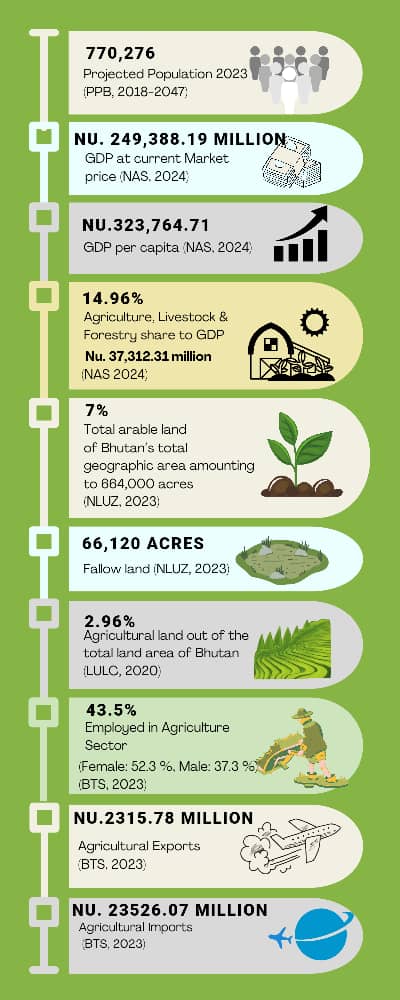The current weather conditions are conducive to the development of the rice blast fungus (Pyricularia oryzae). Rice blasts can devastate paddy and lead to significant yield losses, especially when susceptible varieties are grown.
The Centre would like to inform the extension agents to scout the fields for blast incidence and advise farmers on actions required:
- Identify the variety grown; if susceptible variety is grown, advise farmers to shift to resistant varieties from next season
- Scout and treat the hot spot areas and the surrounding area with fungicide (Tricyclazole), if Gewogs do not have the fungicide, contact NPPC for assistance immediately
- Monitor fields regularly and apply fungicides if there are blast infections when plants are nearing the heading stage. Node and neck blast infections are destructive and require weekly monitoring for early detection. However, applying fungicide when not required is not recommended; therefore, field scouting and monitoring are important.
- Advise strongly that fungicide use is not recommended for the long term as the pathogen can develop resistance. Fungicide use is only an interim measure
- Adopt cultural practices to reduce blast occurrence in all stages by:
- Using disease-free seed or fungicide-treated seeds for prevention of seedling b
- b. Avoiding high-density planting
- Planting within recommended planting period
- d. Apply nitrogen fertilizer in splits as nitrogen fertilizer promotes excessive vegetative growth leading to high humidity that favors disease development
![]()




